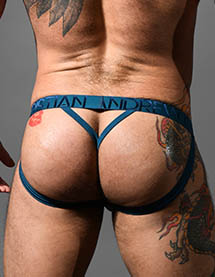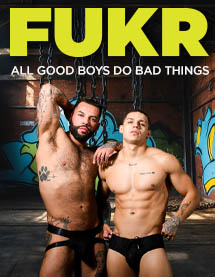The Opioid Epidemic and the LGBTQ+ Community
By Nicholas Velotta
**Disclaimer: Andrew Christian does not support or endorse any illegal substance use. A new study out of New York University’s School of Medicine finds that LGBTQ people are particularly at risk for opioid prescription misuse. Some of us may not be that shocked by the findings—after all, gay men have been in the vanguard of recreational drug use for decades. But we aren’t talking about party drugs here. Opioids are highly addictive painkillers that interfere with almost every aspect of human life (from eroding basic motor skills to disabling our mental capacity for undertaking important life events). The prescriptions’ potential for destroying daily life goes beyond our subjective wellbeing; in 2017 nearly 50,000 people died from an opioid overdose. That calculates to about 130 opioid deaths per day between 2016-2017 according to the US Department of Health & Human Services. This new report sheds light on a rarely discussed piece of the opioid epidemic: how and why the opioid crisis is hurting LGBTQ communities more than heterosexual ones. Researchers found that reported misuse among straight men (5.3%) and women (3.7%) was significantly lower than rates reported by gay men (10%) and lesbians (6.8%). Even more troubling, bisexual women showed a markedly high misuse rate (13.5%) as did bisexual men (8.3%), though to a lesser degree than the bisexual women sampled. NYU’s findings are particularly interesting because they illustrate how gender and sexual orientation interact to produce specific societal trends. In this case, bisexual women seem to be a sociological phenomenon. I say this because, historically, women have lower rates of drug abuse whereas men (especially single men) are considered the exemplar of “at risk” populations. However, when we use sexual orientation as a second level of analysis alongside gender, a frightening new trend is uncovered with bisexual women showing unprecedented rates of opioid prescription misuse. Why are LGBTQ people experiencing this striking difference in opioid misuse? One of the most likely causes is what researchers call “intersectionality”. The term refers to a social framework where certain populations can inhabit multiple marginalized identities at once. For example, bisexual women are marginalized for being bisexual and for being female, and, on top of that, there’s biphobia within the LGBTQ community—meaning bi people are further stigmatized by their LGBTQ brothers and sisters. Drug use is often a coping method for these types of social stressors. Another reason LGBTQ people may seek out coping mechanisms like opioids is “minority stress theory”, which explains that minority populations face high levels of chronic stress because of their ostracized and marginalized status in society. Minority stress combined with intersectionality spells out a difficult social environment for the most vulnerable in our communities, and to the people that gravitate towards substance abuse when times get tough, opioids are incredibly alluring. This is because opioids not only kill physical pain, but they can also numb our emotional pain. Users of heroin (a popular opioid sold on the streets) often describe their high as similar to being back inside the womb, a sensation of safety and warmth, relief of all emotional baggage and physical discomfort. LGBTQ people who have psychic trauma from past abuse, build up resentment or anguish from social or familial disapproval, or feel like they don’t belong may use commonly prescribed opioids like Vicodin, OxyContin, or codeine as a way to feel a temporary peace, only later to become chemically dependent on the pills. Gay culture is fairly drug positive, but it’s important that as a community we don’t prioritize momentary bliss over safety and mental health. This study merely scratches the surface—researchers only confirmed that we have a concentrated opioid epidemic in LGBTQ communities. Now it’s time that prescription misuse is brought into our sub-culture’s purview and we work towards eradicating this crisis just as we have in the past with other LGBTQ emergencies (like HIV/AIDS, for example). If you or someone you care about is struggling with an opioid addiction, feel free to call the confidential opiate hotline at +1 (877)-779-8096. They will help you figure out what to do in an emergency, get in contact with or learn about the available resources in your community, and/or get information about how to help a friend or family member who is struggling with addiction.Nicholas Velotta is a sex and relationship researcher and writer located out of the University of Washington in Seattle.
**Images licensed from iStock/ creator Jarek










_-_MM_-_4.1.jpg)













